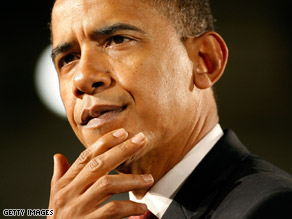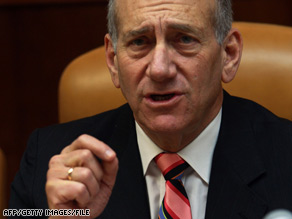
CNN.com Senior Political Producer
WASHINGTON (CNN) -- Sen. Barack Obama's vote for a federal surveillance law that he had previously opposed has sparked a backlash from his online advocates, who had energized his campaign for the Democratic presidential nomination.
Sen. Barack Obama said he voted for the surveillance bill because it will help protect the nation.
In October, Obama had vowed to help filibuster an update of the Foreign Intelligence Surveillance Act (FISA) that gave telecommunication companies that had cooperated with President Bush's warrantless wiretapping program immunity from lawsuits.
After 9/11, Bush secretly authorized the National Security Agency to eavesdrop, without the mandated warrant from a federal court, on electronic communication involving terrorist suspects.
Critics said Bush's Terrorist Surveillance Program was a violation of civil liberties.
The Senate voted Wednesday on the bill updating FISA -- which had a provision to shield telecommunications companies that had cooperated in the surveillance. Obama joined the 68 other senators who voted to send the bill to the president's desk.
Obama did vote for an amendment offered before the final vote by Sen. Christopher Dodd, D-Connecticut, that would have stripped the immunity provisions from the bill, but the amendment failed.
Bush signed the bill into law on Thursday, saying the bill "will help us meet our most solemn responsibility: to stop another attack."
The bill does not grant the telecommunication companies direct immunity, but it does contain a provision that allows a federal judge to dismiss the suits if the companies can present a letter from the government stating that the program was legal.
Mike McConnell, the director of national intelligence, testified before Congress that all the companies received such letters.



